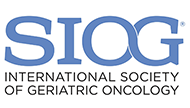Corticosteroids And Cancer Treatments In Older Patients
Historically, chemotherapy-induced nausea and vomiting (CINV) is regarded as being among the most pertinent and debilitating side effects of cancer chemotherapy and consequently several societies developed guidelines for the use of antiemetic drugs in order to minimized the risk for CINV (Gralla RJ et al. J Clin Oncol 1999;17:2971-2994; Hesketh PJ et al. J Clin Oncol 2015;34:381-386; Roila F et al. Ann Oncol 2016;27 (Supplement 5):v119-v133; Hesketh PJ et al. J Clin Oncol 2017;35:3240-3261; https://www.nccn.org/professionals/physician_gls/pdf/antiemesis.pdf). According to their respective emetogenic potentials without prophylaxis, cytotoxics are usually classified as having a minimal, low, moderate or high emetogenic potential; a step-wise prophylactic approach is tailored according to their respective emetogenic potential.
End points and trial design in geriatric oncology research
Selecting the most appropriate end points for clinical trials is important to assess the value of new treatment strategies. Well-established end points for clinical research exist in oncology but may not be as relevant to the older cancer population because of competing risks of death and potentially increased impact of therapy on global functioning and quality of life. This article discusses specific clinical end points and their advantages and disadvantages for older individuals.
Illness trajectory of elderly cancer patients across cultures
The task force aimed to raise awareness of the influence of culture in geriatric oncology. Negotiating cross-cultural issues in geriatric oncology helps managing possible conflicts between patients, families and physicians over cultural differences.
Organization of the Clinical Activity of Geriatric Oncology
The aim of this survey was to collect descriptive date on the delivery of cancer care to the elderly in as many countries and medical institutions as possible.


